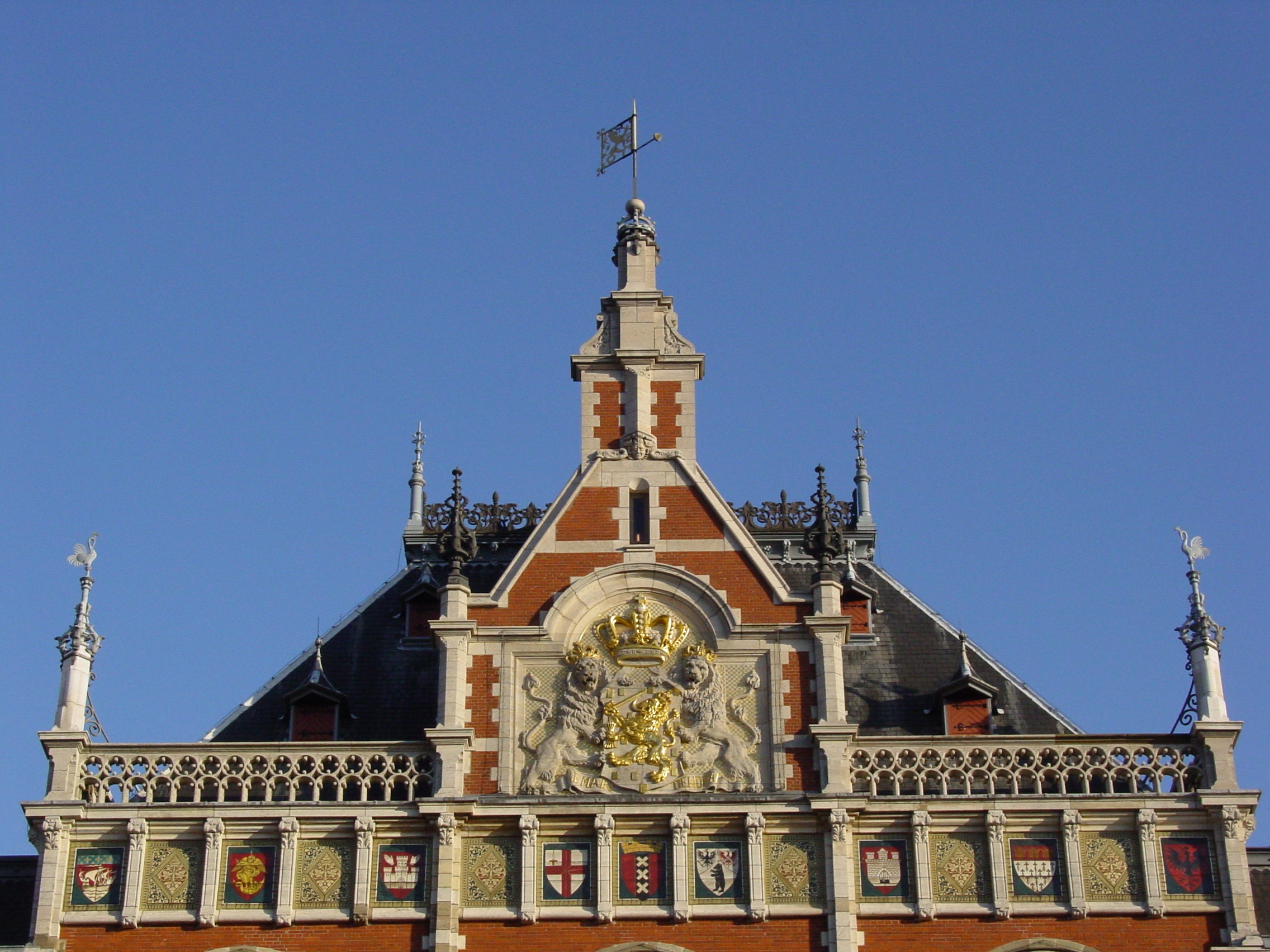Amsterdam to London by train? Next year, you’ll face a six-month wait
The Man Who Pays His Way: The train not departing from the Dutch capital is a casualty of Brexit, say some

Your support helps us to tell the story
From reproductive rights to climate change to Big Tech, The Independent is on the ground when the story is developing. Whether it's investigating the financials of Elon Musk's pro-Trump PAC or producing our latest documentary, 'The A Word', which shines a light on the American women fighting for reproductive rights, we know how important it is to parse out the facts from the messaging.
At such a critical moment in US history, we need reporters on the ground. Your donation allows us to keep sending journalists to speak to both sides of the story.
The Independent is trusted by Americans across the entire political spectrum. And unlike many other quality news outlets, we choose not to lock Americans out of our reporting and analysis with paywalls. We believe quality journalism should be available to everyone, paid for by those who can afford it.
Your support makes all the difference.Simon Calder, also known as The Man Who Pays His Way, has been writing about travel for The Independent since 1994. In his weekly opinion column, he explores a key travel issue – and what it means for you.
Barry Freeman was waiting on the platform at Amsterdam Centraal when the first Eurostar train from London St Pancras drew in. Back in February 2018, the British expatriate with an interest in rail excellence recognised the significance of the event. One of the key international air markets in Europe, linking the capitals of the UK and the Netherlands, was now an intercity rail route.
London-Brussels-Rotterdam-Amsterdam was a dream trip for rail passengers keen to reach the Netherlands without the hassle of flying or (for those who stick to terrestrial travel) changing from train to ship and back again.
It was, initially, only a one-way miracle. The big problem: Eurostar relies on juxtaposed border controls. All continent-bound travellers are cleared into the European Union while still at London St Pancras International. Five years ago, when the UK was still pretending to be in the EU, that was no problem: French frontier officials simply checked that every British passenger had a valid passport, and that it belonged to them. Inbound from Amsterdam, though, it took time to create a space inside the beautiful-but-constrained Centraal station for the mandatory security checks and passport formalities.
Then the UK government “got Brexit done” – and successfully negotiated for British travellers to have the same status as people from Tonga and Venezuela, vis à vis the European Union. The EU delivered exactly what we asked for: that every UK citizen must have their passport scrutinised for evidence of overstaying, and stamped.
The British decision took effect in 2021 and multiplied the time taken for each UK traveller. As a result, Eurostar must cap passenger numbers on trains leaving Amsterdam for London.
Now the Dutch want to renovate Amsterdam Centraal. The British did the same with another 19th-century gem, London St Pancras – but had the huge advantage of Eurostar trains running in and out of London Waterloo until the new terminus was good and ready.
Such is the scale of the work at the Dutch end of the route that the security-plus-passports operation required to board passengers for London has been squeezed out. Trains from Britain can still arrive and disgorge passengers, who can stride into the city centre or (my preference) take a free ferry across to Amsterdam Noord. But direct trains are simply not possible in the opposite direction. They will, instead, run empty to Brussels.
Nicky Gardner, co-author of Europe by Rail: The Definitive Guide, says: “Eurostar is a victim here of behaving like an airline – with dedicated terminals and security. This is, of course, imposed on Eurostar by the UK government’s insistence on segregated handling of Eurostar passengers and checking immigration status prior to boarding trains.”
The train not departing from the Dutch capital is a casualty of Brexit, she says: “Eurostar’s exceptionalism and that need for dedicated terminals is the direct result of Britain’s difficult relationship with its EU neighbours.
“Thousands of passengers from beyond Dutch borders arrive every day in the Netherlands. Though trains from abroad arrive at over a score of Dutch stations.
“But Eurostar’s need for dedicated terminals just undermines the flexibility that normally comes with cross-border rail travel. Passengers from the Netherlands on direct trains to Belgium, Germany, France, Austria and Switzerland won’t be so seriously affected by the Dutch infrastructure work in 2024, as those trains don’t need dedicated terminals.”
One of rail travel’s permanently optimistic characters is Mark Smith, “The Man in Seat 61”. He says things could be worse: “It sounds like a decent compromise. The feared 12 months has been cut to six. London Amsterdam, Amsterdam-London has a Brussels shuffle. But some of the extra time is recovered by there no longer being any need to add check-in time at Amsterdam.”
Barry Freeman, meanwhile, has an appealingly simple solution: “The UK should join the Schengen area then none of this malarkey will need to take place.”
While little in travel is certain these days, I can’t quite see that happening in the next seven months.
Join our commenting forum
Join thought-provoking conversations, follow other Independent readers and see their replies
Comments